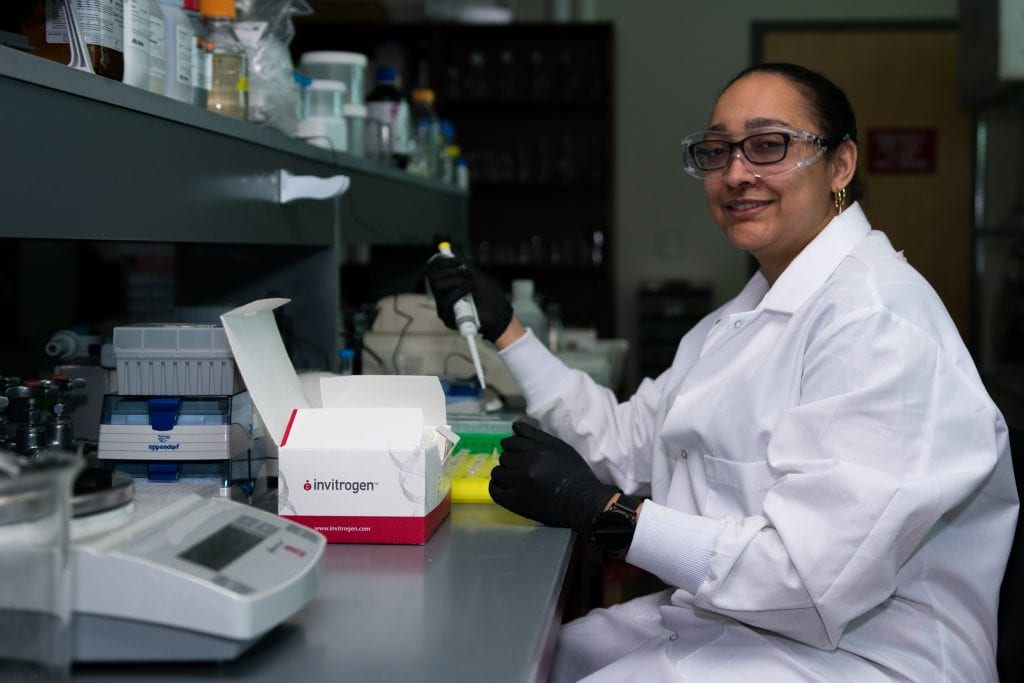Forensic Scientists Harness Pollen Power to Fight Crime

Luz Kelley
Pollen gets a bad rap this time of year for its allergy-induced itchy eyes and sniffles. But researchers at the National Center for Forensic Science are harnessing its crime-fighting power.
That fine, grainy powder staining your windshield yellow holds a wealth of genetic information about its plant origin. Mapping out a precise DNA picture falls to Luz Kelley, a doctoral student with a passion for chemistry, who just received a fellowship from the National Institute of Justice for this research.
“It’s pretty cool knowing that we can play in fighting crime using something as common as plants,” Kelley said.

Bryan McCullough
The concept isn’t new, but technology is making it easier than ever to track criminals and solve crimes. Picture this:Law enforcement intercepts a batch of methamphetamine cooked in a lab hidden deep in the woods. Tests reveal pine pollen which, thanks to work done by Kelley in Dr. Matthieu Baudelet’s lab, can be tracked to a type of pine unique to a certain area. Or, pine pollen swabbed from a suspect’s vehicle help investigators track his or her path. It’s akin to tracing to a cell phone to a tower.
“You’re really only limited by your imagination,” Kelley said.
One of the innovations DNA is advancing is increasing the accuracy of pollen testing. A trained botanist looking under a microscope at a pollen grain can identify the grain with relative accuracy. DNA analysis can identify a plant with far more quantifiable certainty — and from the field.
Kelley’s work has been possible thanks to Bryan McCullough’s work, her doctorate colleague, who devised a way to extract the pollen DNA without destroying the grain. Success will allow more DNA to be tested from a sample, and preserve the pollen grain as critical evidence.
All of these promises a bright future for fighting crime with pollen, but it still doesn’t solve Kelley’s pollen allergy.
“I’m allergic to just about every sample we process,” Kelley said with a laugh. “I’ve just had to make my peace with pollen.”
